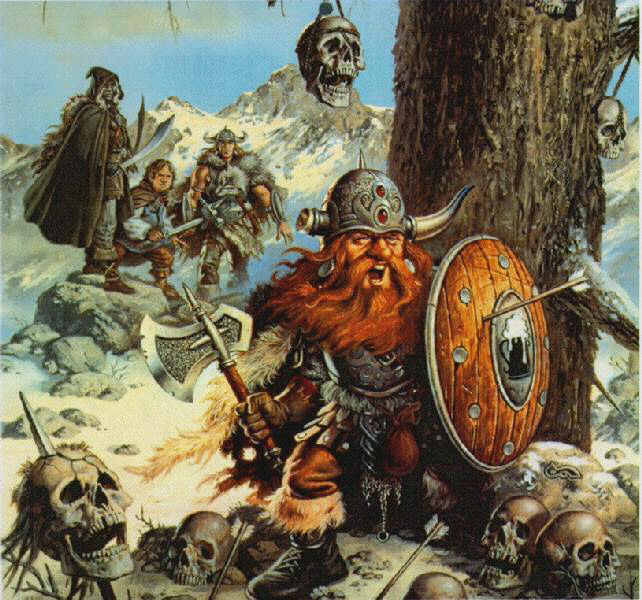So, if I was going to highlight the major differences between these cultures, what would they be?
The goal is to make stylistic differences between groups of humans; different races, if you will.
The Vikings are maritime where as neither the Celts or Goths are.
Actually the Celts were a maritime nation, at least some of them from before and up to the Roman period. How did the Celts get across the English channel or the Irish sea, but more than that, many peoples on the coast of Britain and Britainny saw the Irish as pirates, though they were all Celts. They lacked the superior clinker style viking ships, still had naval transport that could cross oceans, as the viking ships, but unlike most of the other galley style ships of the Mediterranean that could not.
Vikings tend to favour defensive battle tactics and let the enemy come to them and are primarily infantry.
Goths tend to be more mixed and it is hard to be definitive with regard to the celts. However,the Celtd tend to be agressive on the battlefield but most of the information is from earlier eras than either the Vikings or the Goths. So the Gauls tend to be swordsmen and the Britons were known for the use of Chariots, in the Irish Ulster Cycle of myth Chariots are mentioned all the time but by the time the Vikings hit Ireland, Irish armies are mosty infantry and the same applies in the wars with the Normans/English. In fact the Normans rapidly abandon heavy cavalry in Ireland the gorund was against it.Too much forest and bog.
That is it from me, off the tp of my head. I would have to rsearch it to tellyou much more.
I would consider the Goths to be pre-Germanic peoples, whereas Vikings are a much later Germanic people. They didn't exist at the same time.
The big difference between Vikings and the other two mentioned human cultures, is that the former existed from about 800 AD to about 1100 AD, where as the Goths were from the early part of Dark Ages, sav 0 AD to about 500 AD - so I doubt a Goth ever met a Viking, they are from two distinctly different historic time periods, though in many ways are the same people.
Celts continue as an identifiable people up to the modern era, first appeared as a cultural force as far back as 3000 BC in central Europe, then spread outward in all directions, so by 1500 BC covered all of northern, western and parts of eastern Europe, even as far east as Northern India.
I'm not sure I get what you're asking.
Rules-wise, there simply wouldn't be any significant differences to warrant separate racial listings. Although IIRC, the Celts both predate and outlasted the Goths who were really just a migratory group that were absorbed and conquered several times over by their own internal squabbles, the Huns and the Ottomans, and the Vikings appeared later than both groups.
So the largest disparity is going to be technological, but again, what period do you choose? Vikings probably had iron weapons in their earliest incarnations but by the eleventh century had probably managed to adapt to steel, having raided and plundered throughout most of southern europe where steel was more well established, IIRC.
Point being... I think you need to define your question a great deal more before anyone can really narrow things down to a coherent or succinct answer.
While I can agree with much of the latter post, I am building an Iron Age Celtic setting myself, and I have three distinct human nations: the Celts, the Mediterranean culture Etruscan/Mycenaean city-states, and a Germanic people and I have some 'racial' distinctions between them, though technology is the primary differing factor.
While idiosyncracies exist between those cultures, the most interesting thing for me, is despite how 'modern', literate, and cultured the Mediterranean cultures were compared to the more barbaric northern cultures - social divisions, the distribution of wealth, the presence of slaves, who were the military and the educated were almost the same for all three human groups. Language, custom and technology were what set them apart.
Its your fantasy world, so you can do what you want, but Viking doesn't belong in a setting with Celts and Gothic tribes. Goths don't belong in a setting with Vikings and Celts - and for my Iron Age Celtic setting, neither Vikings nor Goths belong, as they are from another time 1000 to 2000 years later.
So it depends on 'when' your setting takes place, if you want to compare to Earth history.
GP

![11485535751098112661_areyouGoth[1].jpg](http://s.bebo.com/app-image/6178307413/6086838986/PROFILE/quizfarm.com//images/11485535751098112661_areyouGoth[1].jpg)

